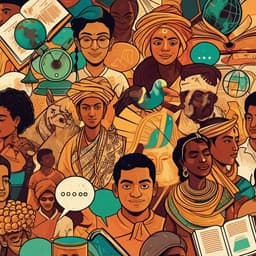
Education
A novel methodology of international discourse: online joint course across cultures
Z. Schnell and C. Podeschi
This research conducted by Zsuzsanna Schnell and Christopher Podeschi delves into a groundbreaking methodology for the globalized classroom, promoting international discourse and addressing sociocultural challenges. It proposes innovative techniques that not only foster open-mindedness but also enhance collaborative communication, ultimately aiming for social change in the 21st century.
~3 min • Beginner • English
Related Publications
Explore these studies to deepen your understanding of the subject.







